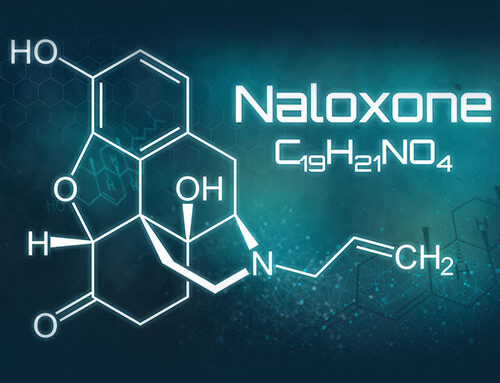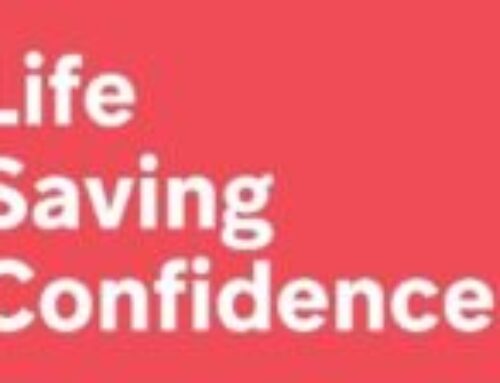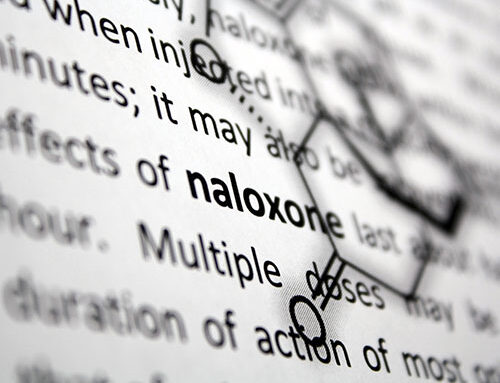Have you ever wondered what’s on the Surgeon General’s list of “the biggest killers out there?” In 2019, then-Surgeon General Jerome Adams gave a surprising answer: stigma.1 Although substance use disorder (SUD) is a chronic and treatable medical condition, research shows that people who suffer with it often experience stigma.2 Read on to learn more about how stigma can affect patient care and recovery, and how we can start to peel away the stigma around SUD.
Recognize how stigma can affect patient care
Research shows that the stigma around people with SUD can affect them even in healthcare settings.2,3
One study asked 314 participants (nearly half of whom were healthcare professionals) to respond to scenarios involving two identical fictional patients3:
- One patient was labeled a “substance abuser”
- The other patient was labeled a “person with SUD”
In spite of these two patients being medically identical, they were evaluated differently just because of the “label”3:
- The patient labeled “Person with SUD” was considered more of a “victim” who was worthy of sympathy and treatment
- The patient labeled “Substance Abuser” was seen as a more dangerous “perpetrator” who was more deserving of punishment
The study shows how the labels we assign people can affect how they are perceived and treated by others.3 If this is happening in healthcare settings, it likely also affects people in other settings.2,3
Understand how stigma can affect recovery
Stigma can have devastating effects on people who suffer with SUD.2 Shame and isolation can reinforce drug-seeking behavior.2 Those who want SUD treatment may not seek it for fear of social disapproval or even criminal prosecution.2 Pre-existing racial disparities may add an additional barrier to care.2 Black Americans can experience delays of up to 5 years in getting treatment for SUD compared to others.2 And young Black Americans are less likely to be prescribed medication for SUD than others.2
Stop the stigma
Common stigma surrounding people with SUD might include assumptions that they are dangerous, weak or somehow responsible for their condition.4 The key to removing stigma from the way we talk about SUD is recognizing that the person is not defined by the disease.2,4
Describe SUD as a disease, not a choice
Today, SUD is recognized as a chronic, treatable disease.2,4 Addictive substances can have powerful effects on the brain—even altering its structure and function in ways that endure long after recovery.5 That’s why many people with SUD must work hard every day to manage their physical and emotional cravings.5 By letting go of phrases like “Habit” and using phrases like “Substance Use Disorder,” you are acknowledging and respecting that, although a person with SUD is trying to overcome their disorder, they are suffering nonetheless.2-5
| Instead of Saying4 | Consider Saying4 |
|---|---|
| Habit | Substance Use Disorder |
Call them a person with a disease, not a disease with a person
Using words like “Addict” or “Junkie” focuses a listener’s attention on the disease before it focuses their attention on the person. Flip it. Use “Person-first” language. This separates the human being from the disorder, allowing for more empathetic and respectful communication.4
| Instead of Saying4 | Consider Saying4 |
|---|---|
| Addict, User, Substance or Drug User | Person with substance use disorder |
| Junkie | Patient |
| Alcoholic or Drunk | Person with alcohol use disorder
Person who misuses alcohol/engages in unhealthy/hazardous alcohol use |
| Addicted Baby | Baby born to mother who used drugs while pregnant
Baby with signs of withdrawal from prenatal drug exposure Baby with neonatal opioid withdrawal/neonatal abstinence syndrome Newborn exposed to substances |
Focus on the judgment-free facts
Even the words commonly used to describe substance use unfortunately also imply a moral judgment. By focusing on facts over judgment, people can be more comfortable treating their SUD health needs as the health needs they really are.2,4
| Instead of Saying4 | Consider Saying4 |
|---|---|
| Abuse | Use (if the substance in use is an illicit drug)
Misuse (if the substance is a prescription drug) Used other than prescribed (consider this if the substance is a prescription drug) |
| Dirty vs clean (toxicology screen results) | Testing positive vs negative |
| Dirty vs clean (person) | Person who uses drugs vs being in remission/recovery
Abstinent from drugs Not drinking or taking drugs Not currently or actively using drugs |
| Opioid substitution replacement therapy | Opioid agonist therapy
Medication treatment for OUD Pharmacotherapy |
NOTE: This article was not written by a medical professional and is not intended to substitute for the guidance of a physician. These are not Hikma’s recommendations, but rather facts and data collected from various reliable medical sources. For a full list of resources and their attributing links, see below.
References
- Pew Charitable Trusts. (2019, July 2). Surgeon General Jerome Adams on Stigma’s Role in the Opioid Epidemic. [Video] YouTube. https://www.youtube.com/watch?v=eLGzwEUZIhU
- Stigma and Discrimination. National Institutes of Health/National Institute on Drug Abuse website. Available at: https://nida.nih.gov/research-topics/stigma-discrimination#affect. Accessed August 31, 2022.
- Kelly JF, Dow-Fleisner S, Westerhoff C. Does Our Choice of Substance-Related Terms Influence Perceptions of Treatment Need? An Empirical Investigation with Two Commonly Used Terms. J Drug Issues. 2010;40(4):805-818.
- Words Matter/Terms to Use and Avoid When Talking About Addiction handout. National Institute on Drug Abuse website. Available at: Words Matter – Terms to Use and Avoid When Talking About Addiction (integratedcaredc.com). Accessed August 31, 2022.
- Facing Addiction in America: The Surgeon General’s Report on Alcohol, Drugs, and Health. US Department of Health and Human Services (HHS), Office of the Surgeon General, Washington, DC: HHS, November 2016.
HK-1956 v1






